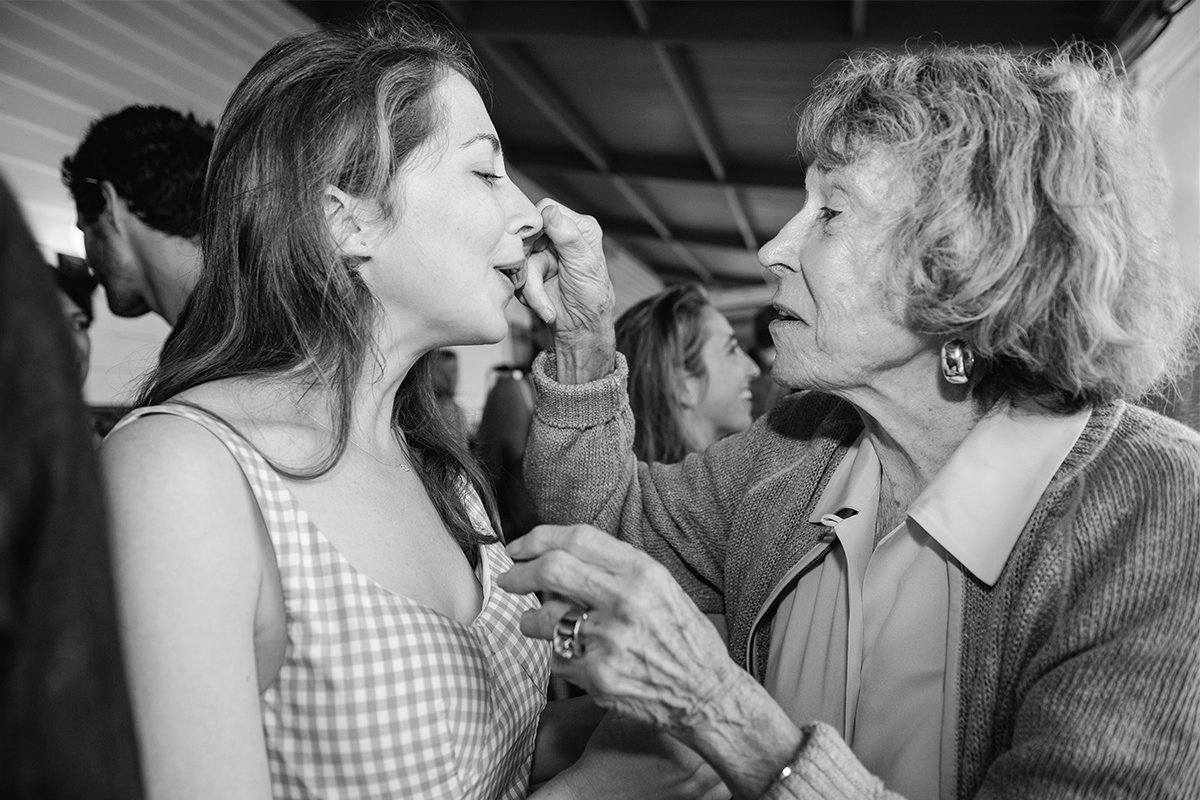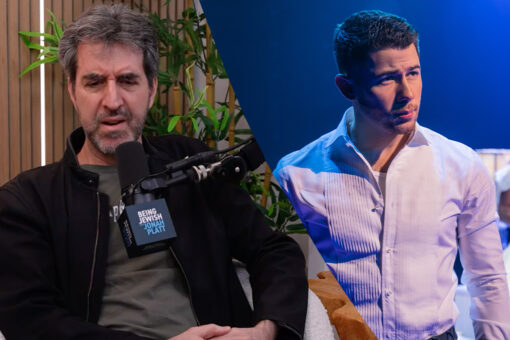As I read Bess Kalb’s debut, Nobody Will Tell You This But Me, I sat on my couch, crying. Subtitled “A true (as told to me) story,” the book is told from the perspective of Bess’s beloved grandmother, Bobby, who passed away at age 90. As I wrote in Alma’s spring books preview, “I have never read anything that feels truer to my experience of having a Jewish grandmother.”
As I sat crying on my couch, I was filled with so much love for my grandparents and my mom and Jewish families and Bess’s story and Bess’s grandma Bobby that I didn’t know what to do with myself. Actually: I knew what to do. I put the book down and called my grandma. I told her about the book I had just read, about how much the story reminded me of her, and how much I love her. We talked about the book, where she was (Arizona; it was too hot, she was coming back early), and about other books we’d read recently (she had taken my recommendation and read Girl, Woman, Other and loved it). We hung up, and I promptly called my mom to have a similar converation.
Like a totally normal person and competent interviewer, when I finally got the chance to chat with Bess Kalb, I opened by telling her, “I loved it just so much. I cried. I called my grandma, I called my mom, it is truly one of my favorite books I’ve read in a really long time. So I just wanted to say that before we get started.” Bess, kindly, responded, “That’s exactly why I wrote it. So if it results in more grandmas being called, then that’s her entire mission — and my entire mission.”
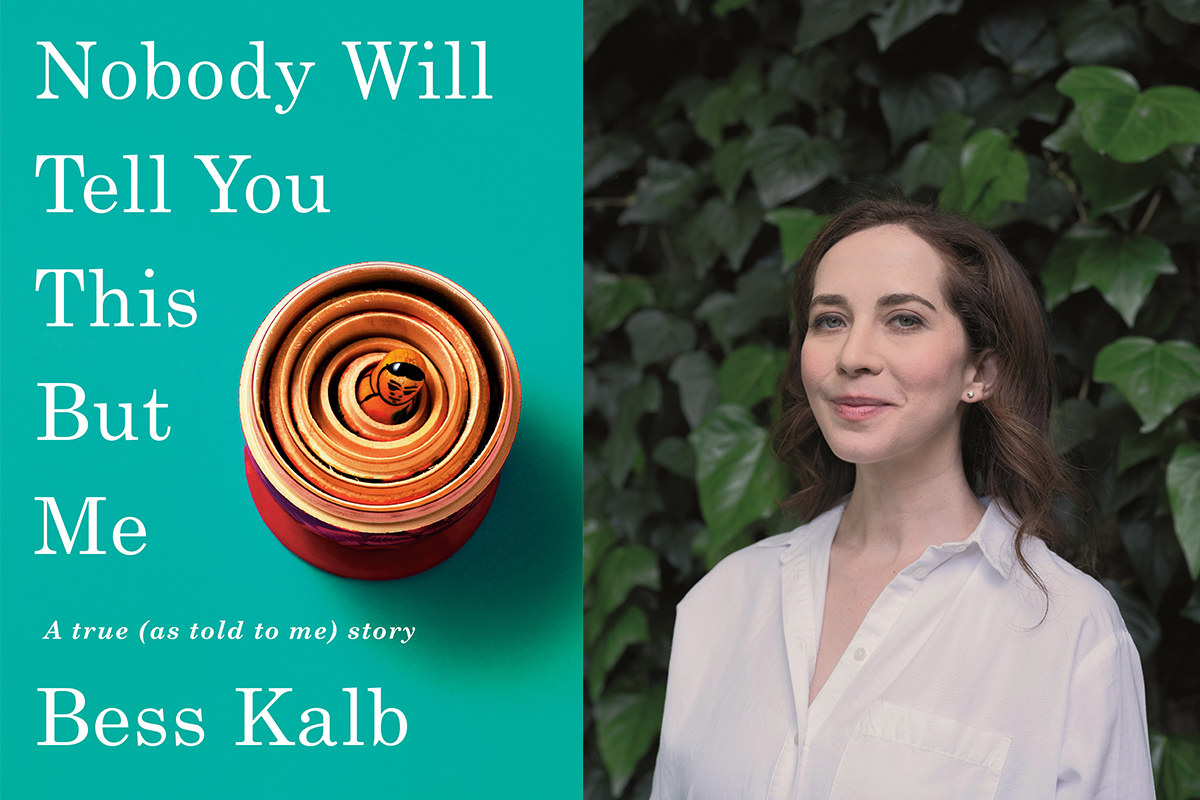
With Bobby’s mission out of the way, we talked about Bess’s debut, the challenges (and comforts) of writing about her grandmother, and how she is now channeling Bobby as a new mom.
This interview has been lightly edited and condensed for clarity.
Can you talk about why you decided to write Nobody Will Tell You from your grandmother’s perspective?
I think there is no other way to tell my grandma’s life story than in her own words. That’s how her story was told to me. In telling a life story, the goal is to bring somebody to life, to make them feel fully realized, and make them feel available to the reader. There’s no way to do that, in my opinion, about my grandma, than in her own words. So much of her story is not only what happened to her, but but how she told it. In getting a sense of who she is, and what her agenda is and what her perspective is, there’s a way that I could describe it, but it’s just so much more evocative and meaningful and true when she’s the one saying it.
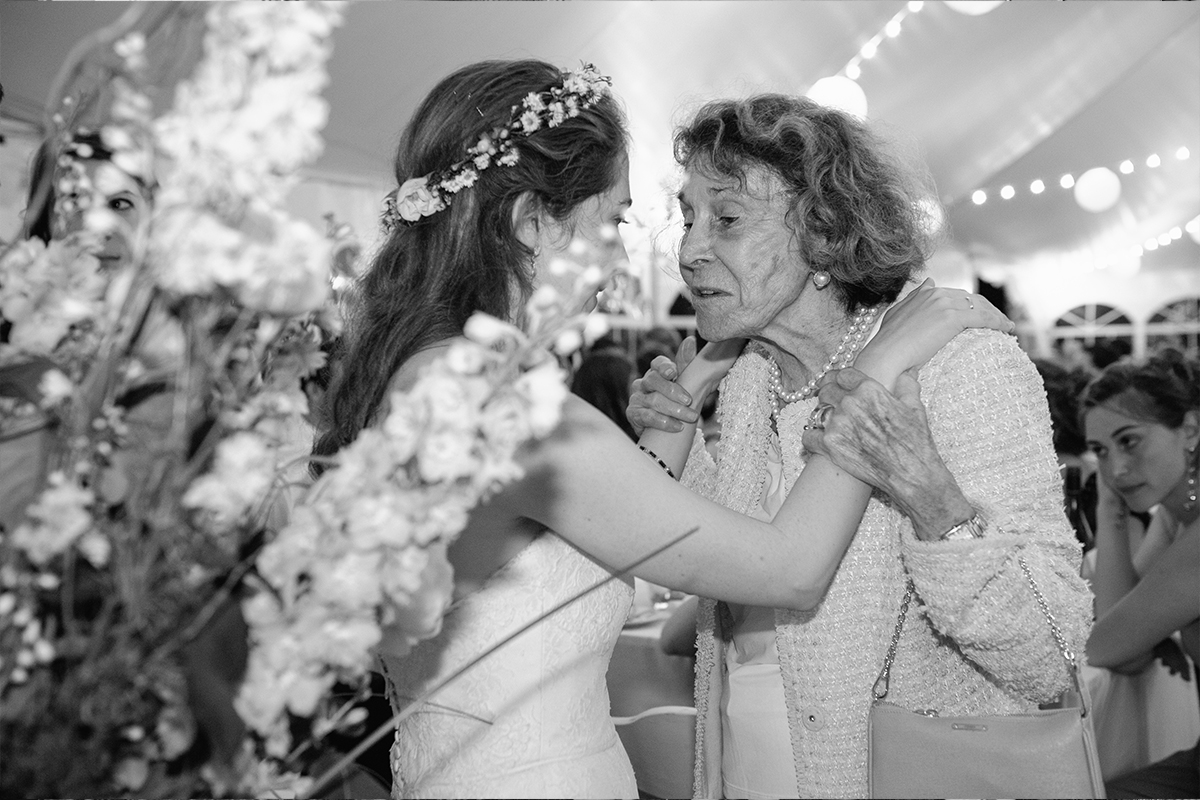
Once you decided to write it from her perspective, what was the most difficult part?
There are a lot of difficult parts of writing! In terms of how her perspective influenced that, I think feeling her so close to me, feeling like she was speaking to me, was at once a very comforting act to conjure her up, but at the same time, made it even more manifest that she wasn’t here. Writing in her voice was proof that there was no more voice to listen to. That she was gone.
There was this tension between feeling a sense of intimacy and a sense of loss. And as a writer, it was a very effective way to get character and voice onto the page, but as a granddaughter, it was quite heartbreaking and difficult emotionally. It would have been a lot easier if I were just writing the character — but instead, I was writing one of the great loves of my life.
You’re known for writing humor, for Jimmy Kimmel Live and in The New Yorker’s Daily Shouts. Was it difficult to shift your humor into book form?
That’s an important technical question. I thought it would be much harder. In fact, the idea of sitting down to write this book was really intimidating and daunting because my day-to-day experience is writing in super short form. But, I was shocked at how easily this voice and this story came to me. I was able to just write for days on end — with a ton of snack breaks. The story, as funny as some of the elements of it are, really did lend itself to long form narrative writing.
How did you collect your grandma’s story? Did she just share things with you, unprompted?
It was she and I, one on one, from the time I was born. My grandma was one of my primary caretakers when I was growing up because both of my parents worked full time. To fill the time with a baby, and then a toddler, you just kind of talk, as I’ve learned with my son recently. She talked at me constantly. And then as soon as I was able to talk, it went both ways. So I sort of returned it in kind, to the extent it was very hard for my grandfather to get a word in edgewise when my grandma and I were together.
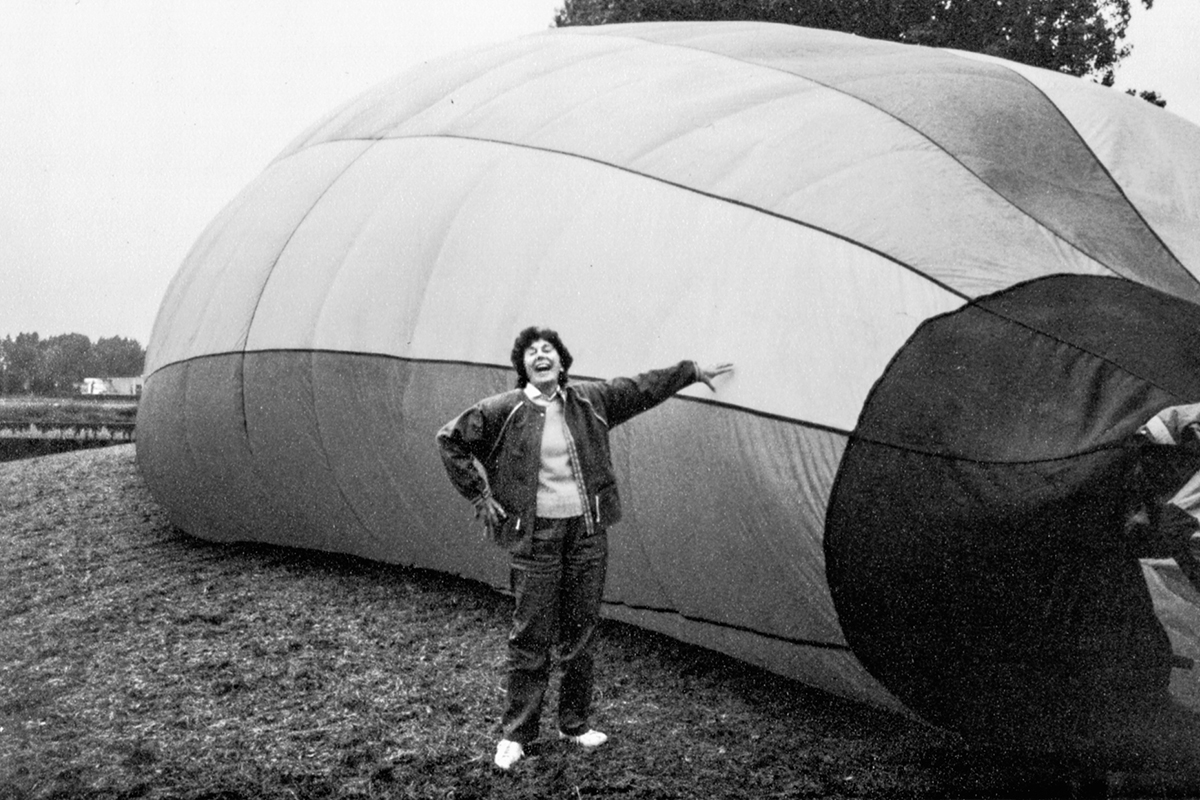
She would definitely tell her stories unprompted, but there was always a reason. There was always an agenda underneath the story. There was usually a reason why something was being repeated, either as a worst case scenario, or something to emulate. The reason that I wrote the book the way that I did — interweaving modern conversations and my personal struggles as an adult with stories from her past and our past — captures the same dynamics that I had with my grandma. I would tell her I was doing something, and then she would quietly tell me the story of my mother’s friend who fell off a horseback and her husband left her. Or her story of her zayde, her grandfather, or her mother’s story about coming to America. These were all lessons for me, disguised cleverly as completely innocuous biographical detail.
I wanted to ask about that. Much of the book goes into your family’s history, particularly of your great-grandmother fleeing to America. What was it like to dive into your family’s history?
I mean, it’s an adage, especially in our current political climate, that we are all immigrants. That in my family is absolutely true. My grandma’s story is an immigrant story, and though, at the end of her life, she had incredible privilege, she was born impoverished, penniless, in a row house in Greenpoint [Brooklyn], to a woman who truly came to this country with nothing, with just what she could carry. I say woman — [I mean] a girl. My great-grandmother was 12 years old when she came here.
In excavating family history — anecdotes that would be able to shape a coherent narrative of what it was like to come from Belarus, from the Pale of Settlement in the shtetl, to Ellis Island — I was able to really emphasize with, and marvel at, my great-grandmother. In researching what the immigrant experience was like [and] what the Jewish experience was when fleeing Eastern Europe, I sort of looked at the stack of reasons why a 12-year-old wouldn’t be able to make or survive that journey, versus this one chance that she would. It was just incredible to me that she had. So I was left with a sense of wonder and appreciation.
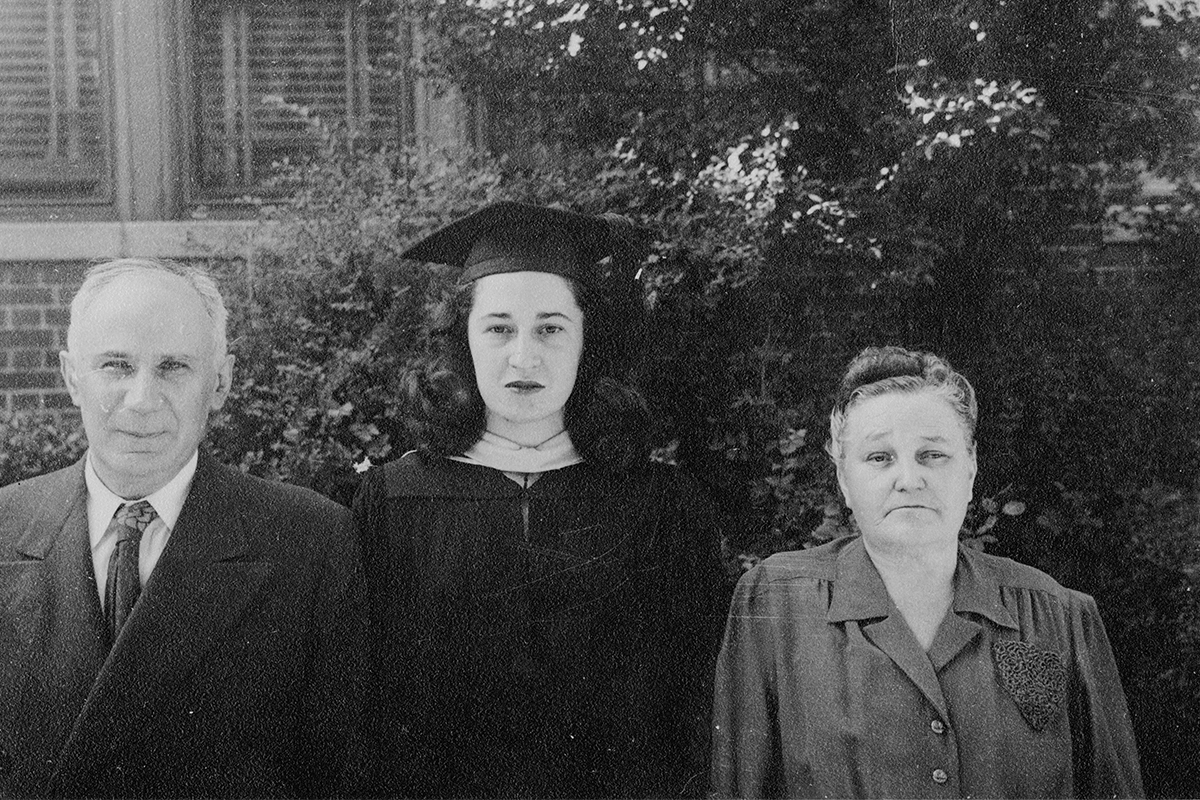
As you researched and wrote, what surprised you most about your grandma or your family?
There were definitely a lot of surprises. I was surprised by the amount of empathy I had for my mother, and the amount I was able to understand the relationship between my mother and my grandmother, which is the sort of central tension of the book. One of the overall themes of the book is how love can sort of skip a generation, and how a woman who was a very distant mother was a very close grandmother. That was just a narrative that guided my life. But once I started writing the book, I was able to see the mother-daughter relationship that my mom and grandma had in a new way.
I assume your mom has read it at this point?
Yeah, she has.
What was her reaction when she read it?
My mom was primed to go in — and she says this — not liking it. And, she loved the book! And was very proud.
Moms!
She also just kept saying, “That’s Grandma.” My mom is my most important critic, and the most important litmus test for whether or not this rings true.
What do you think Bobby would have thought of this book? And do you think this is something you could have written during her lifetime, or was it mainly a way to process your grief and look back on your relationship?
My grandma was always my muse. I would write down voicemails and conversations when she was alive, because nobody is funnier than Bobby Bell was. She knew how funny she was; she had amazing comic timing. She was able to arch an eyebrow when she knew she said something that would just level you. I think the book would have been maybe pure comedy when she was alive; once she died, it took on a grief narrative in a pretty central way. So it’d be a different book, it would probably be a funnier book. But I don’t think it would have been as complete a portrait of our experience together. Once she died, I was able to assess how much she meant to me.
As you said, so much of this book is centered on a grief narrative. It struck me as very Jewish. What’s your relationship with Jewish ritual, and how did it play out when grieving?
I didn’t realize how Jewish a book this would be when I set out to write it. Actually, that might be the most surprising thing about the book: how Judaism is such an important through line in not just my relationship with my grandma, but our entire family and and where I come from.
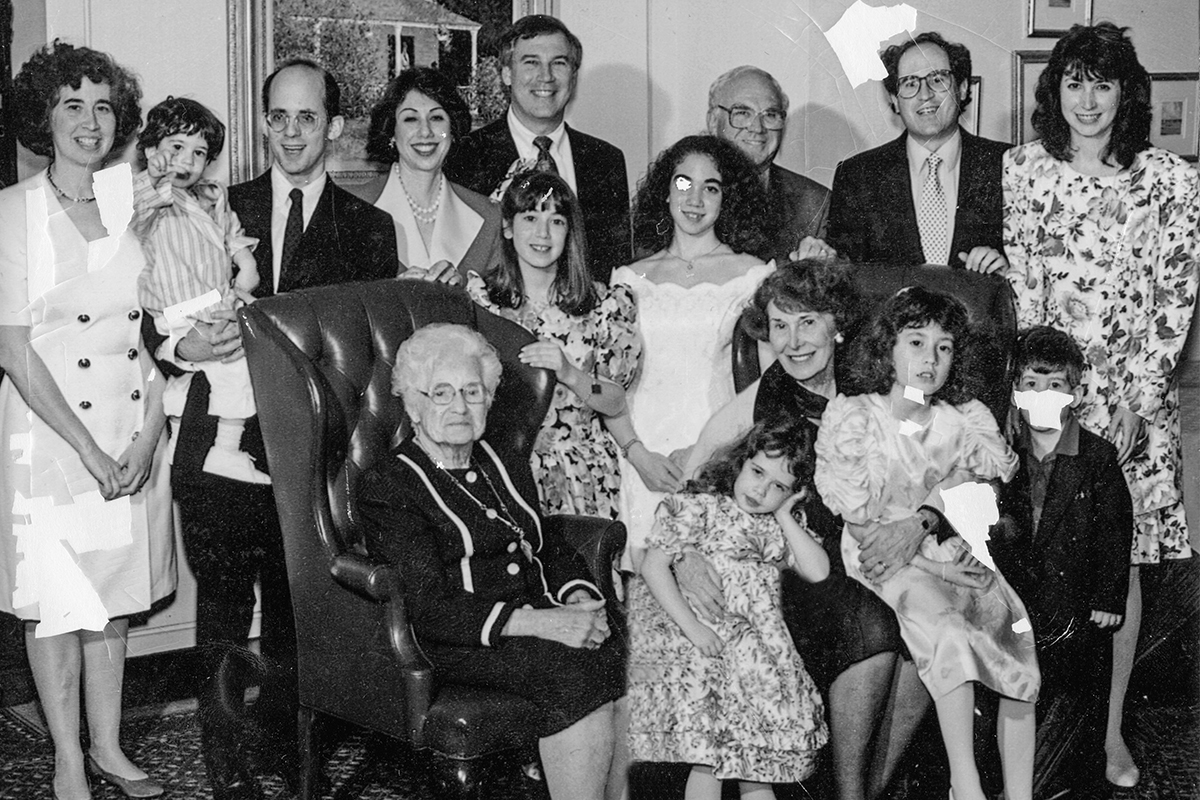
My grandmother was not necessarily the most devout Jew, but temple was important to her — community was important to her. Jewish gatherings, Jewish rituals, were incredibly important to her. My strongest memories of her [are] in her house leading seders and leading Shabbat.
But what I didn’t realize when I started writing was how much those Jewish rituals and gatherings for her were a connection to her mother. In having my own son in an interfaith marriage, my grandma has certainly influenced the way that I think about my son’s Judaism, to the extent that there’s no question as to his Judaism. Probably the most Jewish thing I’ve done, and the most Bobby Bell thing I’ve done since her death, was when my son was 2 months old, emailing the JCC in our neighborhood saying, I have a genius for you, ready for preschool when you are. And obviously, I was kidding. But was I kidding? I don’t know. Only my grandma knows.
Header image: Bobby fixing Bess’s makeup at Bess’s rehearsal dinner. Courtesy Bess Kalb.
